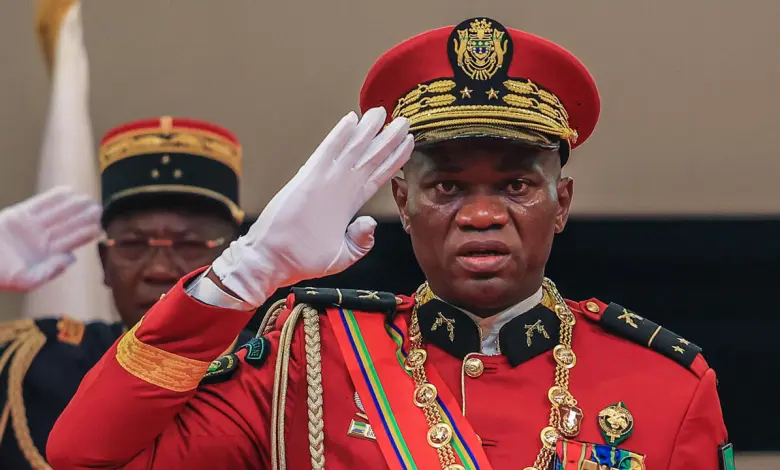Gabon’s Former Coup Leader Wins Presidency with 90% of Votes in Historic Election
Former Military Leader Secures Landslide Victory in Post-Coup Election

In a dramatic political development for Central Africa, Gabon’s interim president Brice Clotaire Oligui Nguema has secured a landslide victory in the country’s first presidential election since the 2023 military coup that ended the Bongo family’s five-decade political dynasty.
According to provisional results announced by the Gabonese Interior Ministry, the 50-year-old former head of the Republican Guard captured an overwhelming 90.35% of votes cast, solidifying his transition from coup leader to democratically elected president.
“This represents a historic moment in Gabon’s political development,” says Professor Matthieu Ndong of the Central African Political Institute. “The election marks the formal transition from military to civilian rule, though questions remain about the future democratic trajectory.”
Election Details: High Turnout and Distant Competitors
Interior Minister Hermann Immongault announced a remarkably high voter turnout of 87.21%, with approximately 920,000 registered voters participating across more than 3,000 polling stations, including 28,000 overseas voters.

Candidates and Results
The election featured eight candidates, though Nguema’s victory margin was substantial:
- Brice Clotaire Oligui Nguema: 90.35%
- Alain Claude Bilie-By-Nze (former Prime Minister): 3%
- Six other candidates: The combined remainder of votes
Bilie-By-Nze, who served as Prime Minister under the previous administration, recently alleged in an interview with The Associated Press that Nguema leveraged state resources to support his campaign – accusations the current government firmly denies.
Election Monitoring and Transparency Assessments
According to the Gabonese Civil Society Organizations Observation Mission, the election proceeded with remarkable smoothness across the country. The observer group reported that 94.8% of monitored polling stations operated under satisfactory conditions, and transparency of operations was deemed satisfactory in 98.6% of cases.
A notable disparity emerged in candidate representation at polling stations:
- Nguema’s representatives were present at 69.6% of observed polling stations
- Bilie-By-Nze’s representatives were present at only 8.2%
“This level of representation disparity, while concerning, is not unusual in transitional contexts where an incumbent interim leader has consolidated significant political advantages,” notes Dr. Françoise Moudounga, an election specialist with the West African Democracy Network.
From Military Coup to Presidential Office
Nguema’s political journey began dramatically in August 2023 when, as head of the Republican Guard, he led the military coup that removed President Ali Bongo Ondimba from power. The coup effectively ended the Bongo family’s 56-year rule over the oil-rich nation.
Economic Stakes in the Election
This election carried particular significance for Gabon’s 2.3 million citizens, a third of whom live in poverty despite the country’s substantial oil wealth and natural resources. Gabon ranks among Africa’s top oil producers, but wealth distribution remains a critical challenge.
After casting his ballot in the capital Libreville, Nguema expressed pride in Gabonese citizens seeking to “turn the page to join the new Republic,” signaling his intention to establish a distinct era in Gabon’s governance.
What’s Next for Gabon Under Nguema’s Leadership?
With a seven-year presidential term ahead, Nguema faces significant challenges:
- Addressing economic inequality despite abundant natural resources
- Establishing democratic institutions after decades of dynastic rule
- Navigating international relations as a post-coup government
- Implementing promised constitutional reforms
“The international community will be watching closely to see if Gabon can successfully transition to genuine democratic governance,” explains Célestine Mba, senior analyst at the Center for Democratic Transitions. “The high margin of victory raises legitimate questions about competitive democratic processes, even as the election itself appeared procedurally sound.”
Regional Implications for Central Africa
Gabon’s election comes amid a wave of military takeovers across West and Central Africa, with recent coups in Niger, Mali, Burkina Faso, and Guinea. How Nguema transitions from coup leader to elected president could set important precedents for other military leaders who have seized power in the region



